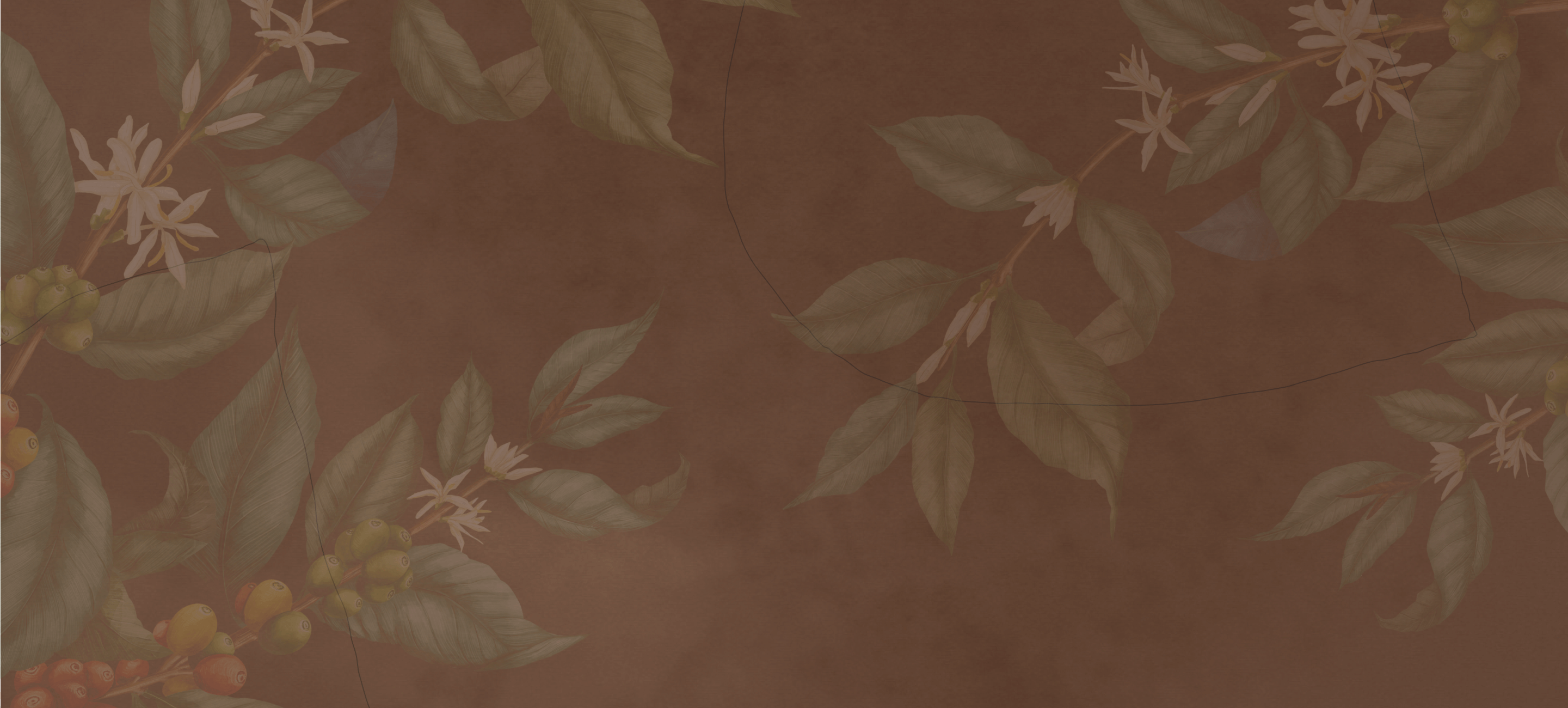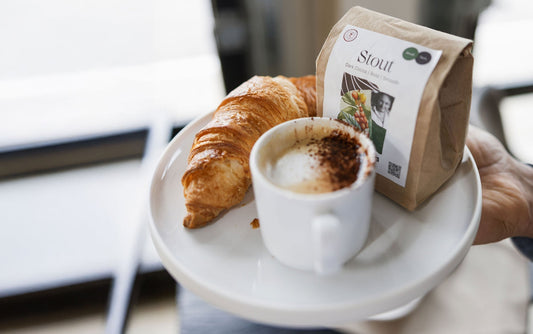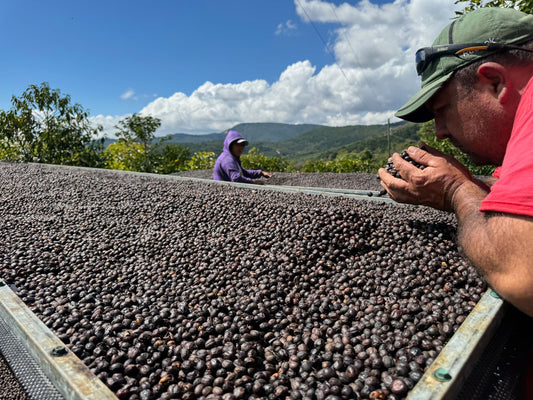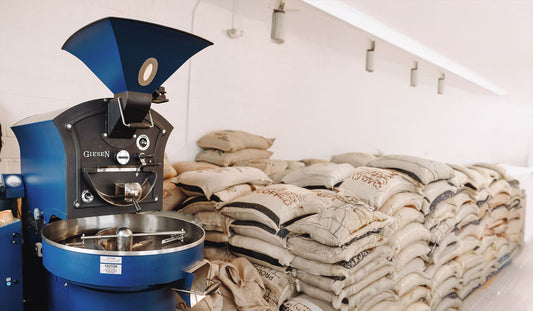In the simplest terms, specialty coffee is about quality, while commodity coffee is about quantity.
But the difference runs deeper. It’s about people, ethics, and the systems that shape how coffee is grown, processed, roasted, and sold.

Once you understand how each model works, you won’t look at your morning cup the same way again.
|
TL;DR: Specialty coffee is traceable, ethically sourced, and grown with attention to quality and sustainability. Commodity coffee is mass-produced, low-cost, and often grown with little transparency or regard for long-term impact. |
Quick Comparison: Specialty Coffee vs. Commodity Coffee
|
Feature |
Specialty Coffee |
Commodity Coffee |
|
Focus |
Quality, ethics, traceability |
Quantity, cost-efficiency |
|
Sourcing |
Transparent, often direct-trade |
Anonymous, bought on C-market |
|
Farming practices |
Organic/regenerative, hand-picked |
Chemical inputs, industrial scale |
|
Roasting style |
Precision-based, origin-specific |
Standardized (dark/medium) |
|
Flavor profile |
Unique, natural notes (fruit, florals, cocoa) |
Generic, masked flavors |
|
Typical price per lb |
$3–6+ (fair trade, premium) |
~$1.80 (C-market average, mid-2024) |
What Is Commodity Coffee?
Commodity coffee refers to coffee that is mass-produced and sold primarily for volume, not value. It is traded as a raw commodity on the C-market, where prices fluctuate based on global supply and demand.
As of mid-2024, the C-market price for green coffee is around $1.80 per pound, a price that doesn’t reflect production cost, sustainability, or quality. Many farmers sell at a loss.
Why is commodity coffee so cheap?
- It relies on chemical inputs and industrial farming.
- Farms focus on yield, not long-term soil health.
- When defects arise - like mold, under-ripeness, or fermentation issues - they’re blended away, not corrected.
- Traceability is minimal. Labels might say “Brazil” or “Colombia”, but that’s like saying your wine came from “Europe.”
You’ll find this type of coffee in:
- Grocery stores
- Office coffee machines
- Vending machines
- Major chains and fast food locations
It’s convenient. It’s everywhere. But it’s not built with ethics or flavor in mind.
What Is Specialty Coffee?
Specialty coffee isn’t just better-quality coffee - it’s a different system altogether. It’s a rejection of the extractive model that defines the commodity world.
These coffees are grown by farmers who prioritize:
- Ethical labor conditions
- Organic or regenerative farming
- Biodiversity and soil health
- Harvesting for ripeness, not volume
Beans are often hand-picked, naturally processed, and dried with extreme care. The result is a coffee that tastes of its origin, not a dark roast mask.
What makes specialty coffee “special”?
- It’s traceable to a specific farm, sometimes even a single plot of land.
- Farming details like altitude, soil, and processing method are preserved and celebrated.
- Flavor profiles are unique: berries, citrus, florals, cocoa, or even whiskey-like funk in fermented lots.
Single-origin isn’t just a label; it’s a form of accountability.
How Do Specialty Roasters Work Differently?
Specialty roasters don’t buy commodities - they build relationships.

They often source directly from producers or use transparent importers. Roast profiles are custom-built for each coffee based on:
- Altitude
- Bean density
- Moisture content
- Processing method
Instead of aiming for a standard roast level, the goal is to bring out the coffee’s natural flavors.
What are natural coffee flavor notes?
These aren’t added, they’re already in the bean. With the right roast and brew, coffee can taste like:
- Blueberry, strawberry, or citrus
- Dark chocolate, walnut, or honey
- Fermented funk, black tea, or even red wine
That’s why specialty coffee isn’t just coffee - it’s agriculture meets craft.
Why Is Traceability So Important in Specialty Coffee?
Ask where a commodity coffee came from, and you’ll usually hit a dead end. “Colombia” is the best you’ll get.
Specialty coffee, on the other hand, embraces transparency as a core value. You can often trace a bag of beans to:
- The farmer’s name
- The cooperative or washing station
- The altitude, varietal, and even the harvest date
Why does traceability matter?
- It keeps producers visible and respected.
- It ensures accountability for ethics and quality.
- It helps consumers make informed choices, and feel connected to the supply chain.
Why Is Specialty Coffee More Expensive?
Because it actually includes the real cost of coffee production:
- Environmental regeneration
- Ethical labor
- Infrastructure for quality control
- Long-term farmer relationships
Commodity coffee externalizes these costs. That’s why it can sell so cheaply - it simply doesn’t pay for what it takes to produce sustainable coffee.
As the Specialty Coffee Association says:
“Specialty coffee is a coffee or coffee experience that is recognized for its distinctive attributes, resulting in a higher value within the marketplace.”

But that higher value isn’t just about taste. It’s about meaning.
FAQs About Specialty vs. Commodity Coffee
Why is commodity coffee still the most common?
It’s cheaper and more scalable, but often at the cost of the environment, labor conditions, and flavor.
Is single origin coffee always a specialty?
Not always. But in most cases, single-origin coffee is part of the specialty system because it requires traceability and quality handling.
Can I taste the difference?
Yes. Commodity coffee often tastes bitter, burnt, or bland. Specialty coffee is more complex, often with fruity, floral, or nutty notes.
So, What’s in Your Cup?
Every cup of coffee is a choice between two systems:
- One is exploitative and invisible.
- The other is intentional and transparent.
Once you know the difference, you can’t unsee it.





